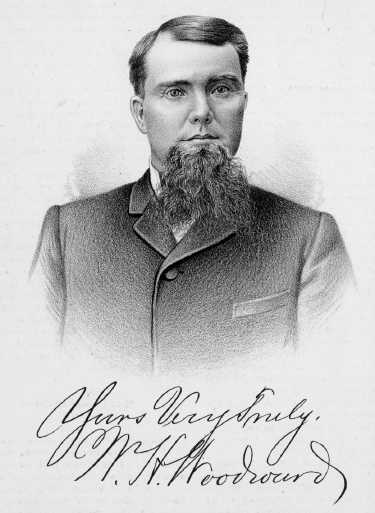
|
|
|||
son of Capt. William C. Woodward, a native of Tennessee, and one of the heroes of the Mexican War. Our subject is the sole survivor of the Woodward family, the other members having fallen on the battlefield while bravely defending the stars and stripes that now wave over a free and undivided country. |
|||
|
|
|
|
|||
the Republican ticket in a strongly Democratic county. He was for several years City Clerk, and also held the office of attorney for the city of Carbondale. In his public life he became intimate with that illustrious citizen, soldier and statesman, Gen. Logan, and assisted him in all his political campaigns. In 1880 our subject received a sunstroke, and was for some time incapacitated for his public or private duties. In 1884 he went to Chicago to take the civil service examination, and was the first appointee of those then examined in the classified service, Mr. Lyman giving him the position of special examiner in the pension office, at a salary of $1,600 a year and $3 a day additional while in the field, which was the largest salary in the classified service. His record is examiner was of the very best, as he was assured by Gen. Dudley, Commissioner of Pensions, in a letter. Our subject was discharged without cause from his office as examiner by Commissioner Black, with no reason assigned, though it is supposed on account of "offensive partisanship," that is for being loyal to the Republican party, under whose banner he had fought in the late Civil War, and of whose principles he has been a stanch supporter ever since. In October, 1885, Mr. Woodward removed to Lincoln with his family, formed a partnership with Capt. Billingsby, an eminent lawyer of this place, which has proved of mutual advantage, and they enjoy a large practice in this State. |
|||
|
|
|
|
|||
it was represented in America during the Colonial days. Fielding Stubblefield departed this life at his home in Greene County, Oct. 1, 1875. |
|||
|
|
|
|
|
|
|
|
© 2000, 2001 for the NEGenWeb Project by Dick Taylor, Ted & Carole Miller

